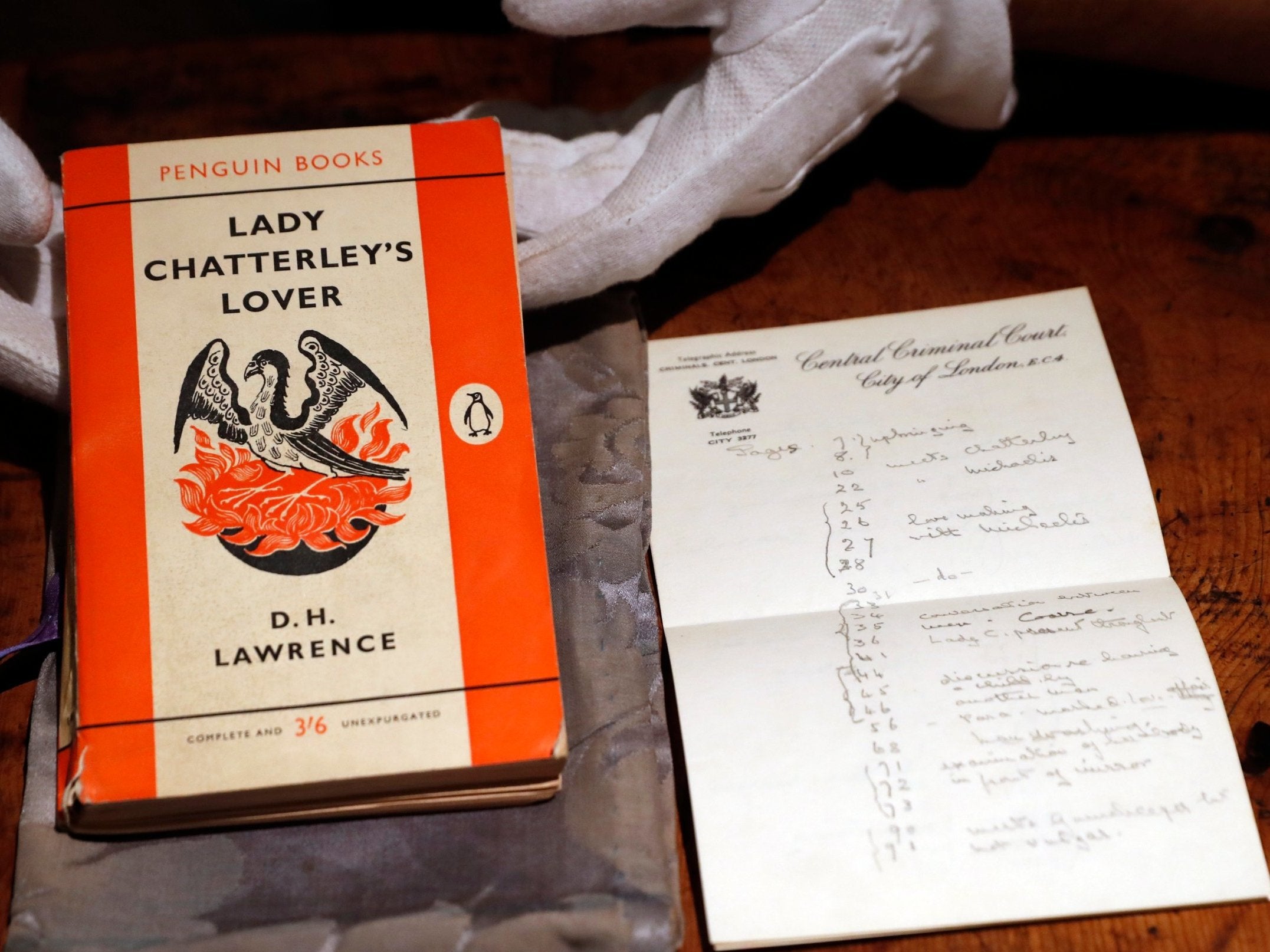Lady Chatterley's Lover hailed as 'sacred text' in attempt to prevent rare copy leaving UK
'It’s a really important part of our heritage. It stands for a principle'

Lady Chatterley’s Lover has been hailed as a “sacred text” for British democracy by a campaign launched to keep a rare copy in the UK.
The sexually explicit novel by DH Lawrence was debated in a 1960 obscenity trial which broke down censorship and ended in a victory for free expression.
Free speech campaigners have said the novel is symbolic of the rights fundamental to democracy and the trial marked a “big moment for British history”.
A copy of the 1928 novel annotated by the judge in the trial has been sold to an overseas buyer but blocked from export by government ministers.
Free expression charity English PEN has launched a campaign to buy the book and keep the valuable text in the UK.
It's director Antonia Byatt said the novel played a part in an “iconic” moment of British history, and should be protected for future generations to learn about valuable principles of liberty.
The charity has launched a fundraising campaign to match the £56,250 price tag on judge Sir Laurence Byrne’s copy of the novel, which he referenced in the landmark trial.
Ms Byatt said: “It’s a really iconic case, I guess, of freedom of expression and freedom of literary expression. Freedom of expression does mean the right to offend. It’s a kind of iconic moment. It chimes very much with writer’s right to speak. It’s a kind of big moment for British history I think, and the British reader.
“I think it is really important, because freedom of expression is one of the human rights. You can’t have a democracy without freedom of expression. You can’t have a democracy without the right of people to speak, and say things that not everybody agrees with. It’s the trial about the book, about that principle, about the piece of literature. It is a kind of sacred text.
“What I think it primarily stands for is free artistic expression, in a democracy. A society that doesn’t have free artistic expression is a poorer society in every way.”
English PEN is appealing for money in a bid to equal the sum the unique copy of Lady Chatterley’s Lover was sold for at auction.
Arts minister Michael Ellis stepped in to block the planned export of the book to its overseas buyer, providing time for efforts “to keep this important part of our nation’s history in the UK”.
The copy, annotated with phrases like “course” and “love-making” by the trial judge and his wife Dorothy, was used in the legal battle which saw Penguin Books become targets of the Obscene Publications Act.
Penguin won the fight in a victory for free expression which presaged the Swinging Sixties and more liberal social attitudes
Ms Byatt believes the book should stay in the UK because the symbol of the Chatterley trial remains potent, and the lessons it teaches on censorship should be remembered in the 21st century.
She said: “What I think is significant here is that something so symbolic of freedom of expression is seen as such a strong part of the nation’s heritage, and that’s how it should stay. It’s a really important part of our heritage. It stands for a principle. What Chatterley did was challenge a piece of legislation. As we create legislation we have to keep challenging that to make sure people’s rights are protected.

“It’s an amazing resource to use to talk to future generations about the value of freedom of expression, and how that works in society, and how you need to challenge censorship.”
The jury returned a verdict of not guilty for Penguin, after having heard evidence from witnesses including Dr John Robinson, Anglican bishop of Woolwich, and literary scholar Richard Hoggart.
Millions of copies of the book were bought in the UK following the trial, which took place 30 years after Lawrence’s death.
Ms Byatt wants the book to remain in the country in order to educate future generations.
English PEN have set up a fundrasing website for the campaign.
Press Association
Join our commenting forum
Join thought-provoking conversations, follow other Independent readers and see their replies
Comments
Bookmark popover
Removed from bookmarks